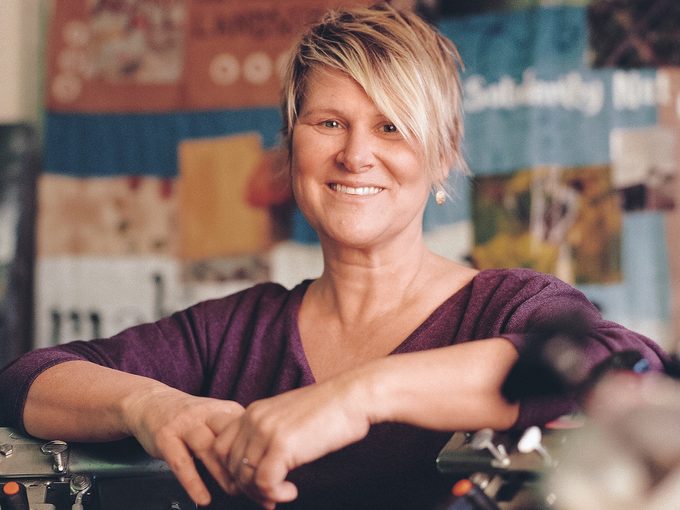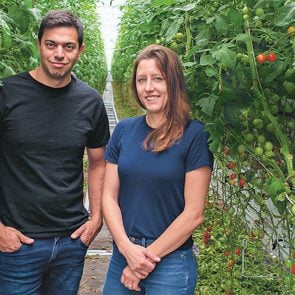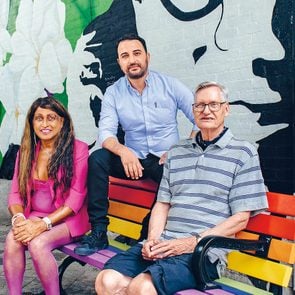This Charity Uses Art to Fight Homelessness
Sketch Working Arts is on a mission to improve the lives of homeless and marginalized youth through creative opportunities.

Phyllis Novak moved from Wallaceburg, Ont., to Toronto in 1984 with dreams of becoming an actor. When she wasn’t working in theatre, she began volunteering at Evergreen, a drop-in centre that supports homeless youth, doing street outreach and helping run Evergreen’s acting and art classes for young adults. Soon working with youth became her biggest role. In 1996, Novak and Sue Cohen, a fellow artist, founded Sketch Working Arts, a charity with a mission to improve the lives of homeless and marginalized youth through creativity.
Sketch’s programs help participants tap into a power they didn’t know they had. Novak believes the arts provide skills to tackle homelessness, as well as the economic and social oppression that often come with it. “You need creativity to navigate these challenges,” she says. “The arts give marginalized youth that creativity and the confidence required to survive, thrive and lead in their communities.”
Minorities comprise a disproportionate number of the approximately 235,000 people who experience homelessness in Canada in any given year. Despite representing only 4.3 per cent of the population, Indigenous people make up an estimated 34 per cent of homeless Canadians, according to the Centre for Equality Rights in Accommodation. This overrepresentation is mirrored in Canada’s youth, who make up 19 per cent of the country’s homeless population. Nearly one in three homeless youth identify as LGBTQ2S, and about 28 per cent of youth in homeless shelters are members of racialized minorities.
Sketch’s 9,000-square-foot space offers free programs that fall into three categories. Each is structured around season-long semesters and offered to anyone between the ages of 16 and 29 who is homeless or navigating poverty. The arts-wellness branch provides basic needs, like food, and offers a general introduction to creating art. An arts-production stream provides classes in specific disciplines, such as visual arts and music. Those interested in a full-time arts career can choose arts leadership, which offers mentorship and the opportunity to work on community-arts projects and education.
When Egyptian-born artist and musician Kut Throat Kleo first joined Sketch’s programs as a participant in 2019, she had a love for music and fashion but no outlet to explore either. As a Muslim person of colour who identifies as queer, she also dealt with prejudice and intermittent stretches of homelessness. At Sketch, she had free access to a music studio and a silkscreen-printing program where she could learn, experiment and collaborate with others.
The 25-year-old now works at Sketch as a facilitator. Using her silkscreening skills, she also runs a clothing label that sells apparel made from second-hand clothes. She now earns enough to secure stable housing in Toronto and says she wouldn’t have the life she has today without Sketch. “There’s a lot of trust in the community,” she says, “as well as freedom to express and exist as who you are.”
When the pandemic hit, Novak kept Sketch going with virtual offerings. In 2021, nearly 700 people participated in Sketch’s virtual programs. Sketch directed nearly $70,000, as well as free cellphones and tablets, to support young artists and keep them connected during the isolation of lockdown.
This year, the organization is planning a block party for its 25th anniversary. Novak is optimistic that Sketch will fully reopen this spring, COVID permitting. “I’ve missed the energy of our studio,” she says. “I’d walk in and be surrounded by young, diverse artists busy at work, and the energy of creation was so powerful, it was almost visceral. Sketch is empty for now, but I know that hope and creative energy will return.”
Next, check out 14 Canadian charities that are worth supporting.






